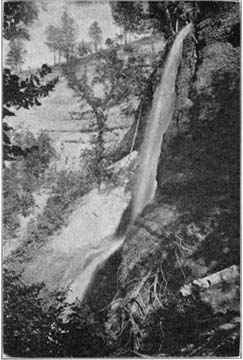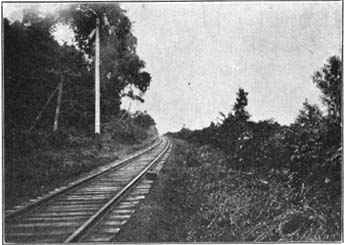|
CHAPTER X
Falls of Arikaree in Cherry County There was no delay by the ruling interests in the new state to act upon the situation. Governor David Butler issued his proclamation convening the legislature to meet at Omaha in extra session May 16, 1867. Some forty different subjects were enumerated by him for the legislature to consider. In brief they were to construct a new system of law and administration for the state. Now was the opportunity of the South Platte to assume control of affairs and visit long delayed vengeance on the city of Omaha. With a South Platte governor and a majority of both houses from the same region the task was not hard. A bill to re-locate the seat of government was quickly passed,--in the senate by a vote of 8 to 5, in the house by 25 to 14. Three commissioners, --Governor David Butler, Secretary of State Thomas P. Kennard, and Auditor John Gillespie,--were appointed with power to locate the capital, the state university and the state penitentiary, somewhere in Lancaster, Seward, or the southern half of Butler and Saunders counties. They were empowered to acquire title, survey and sell lots in the new capital city and with the proceeds erect the necessary state buildings. On July 29, 1867, the three commissioners unanimously chose the present site, whose name by the terms of the act was to be Lincoln. It was a bold enterprise to lay off a capital city on a naked prairie, miles west of any compact settlement and expect to sell enough lots to erect expensive and permanent public buildings. The commissioners were equal to the emergency. Auction sale of lots began September 17 at Lincoln. The first day's auction was a failure. The commissioners, determined to succeed, "arranged" for bids the following day. It may well be doubted, however, whether the experiment would have proven a success if it had not been for the active support of the people of Nebraska |
Site of Peter A. Sarpy Trading Post Near Bellevue City. Nebraska City votes in the legislature had passed the act and now Nebraska City capital came to the front for the purchase of Lincoln lots,--after the three commissioners, to prevent an impending failure in the sales, had risked their own capital by becoming bidders. |
 |
 |
 |
 |
|
@ 2002 for the NEGenWeb Project by Pam Rietsch, Ted & Carole Miller |
|||

